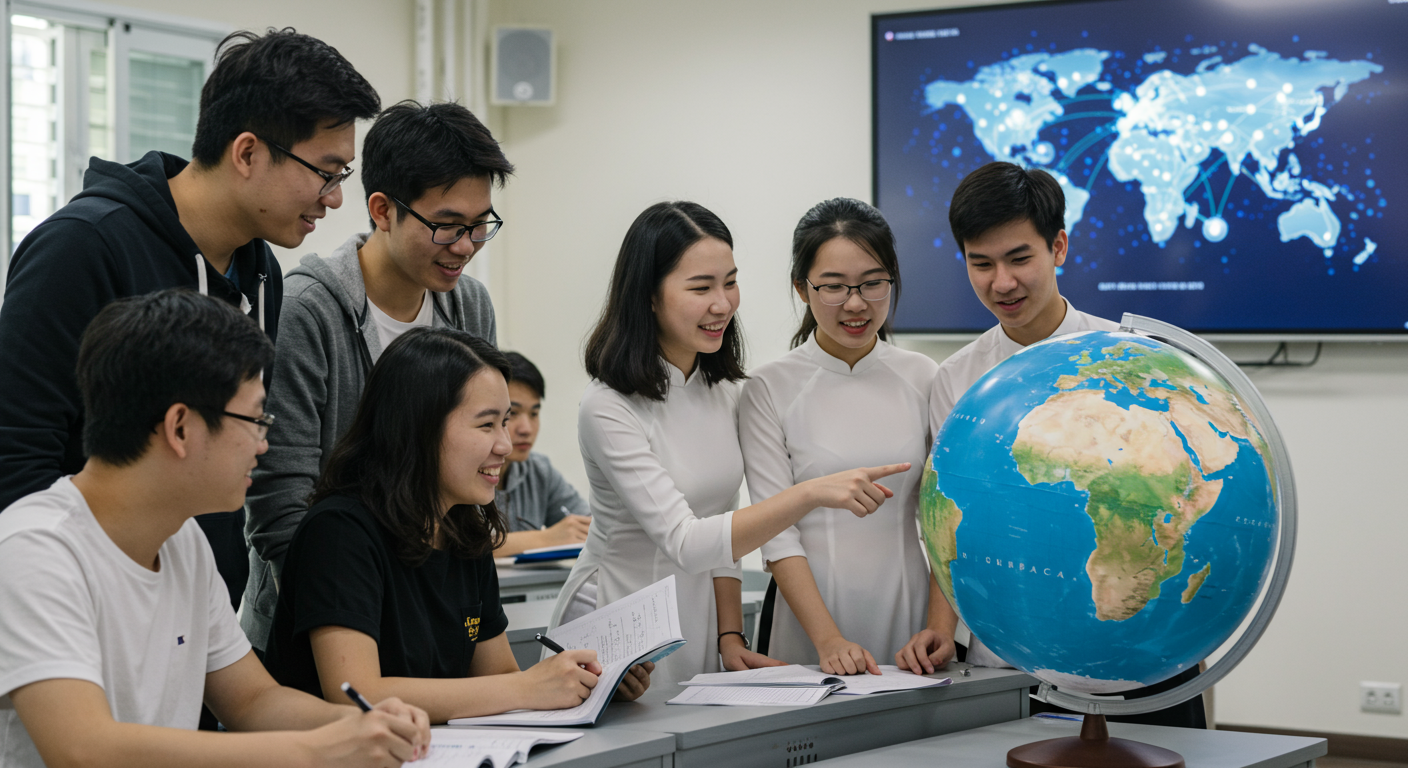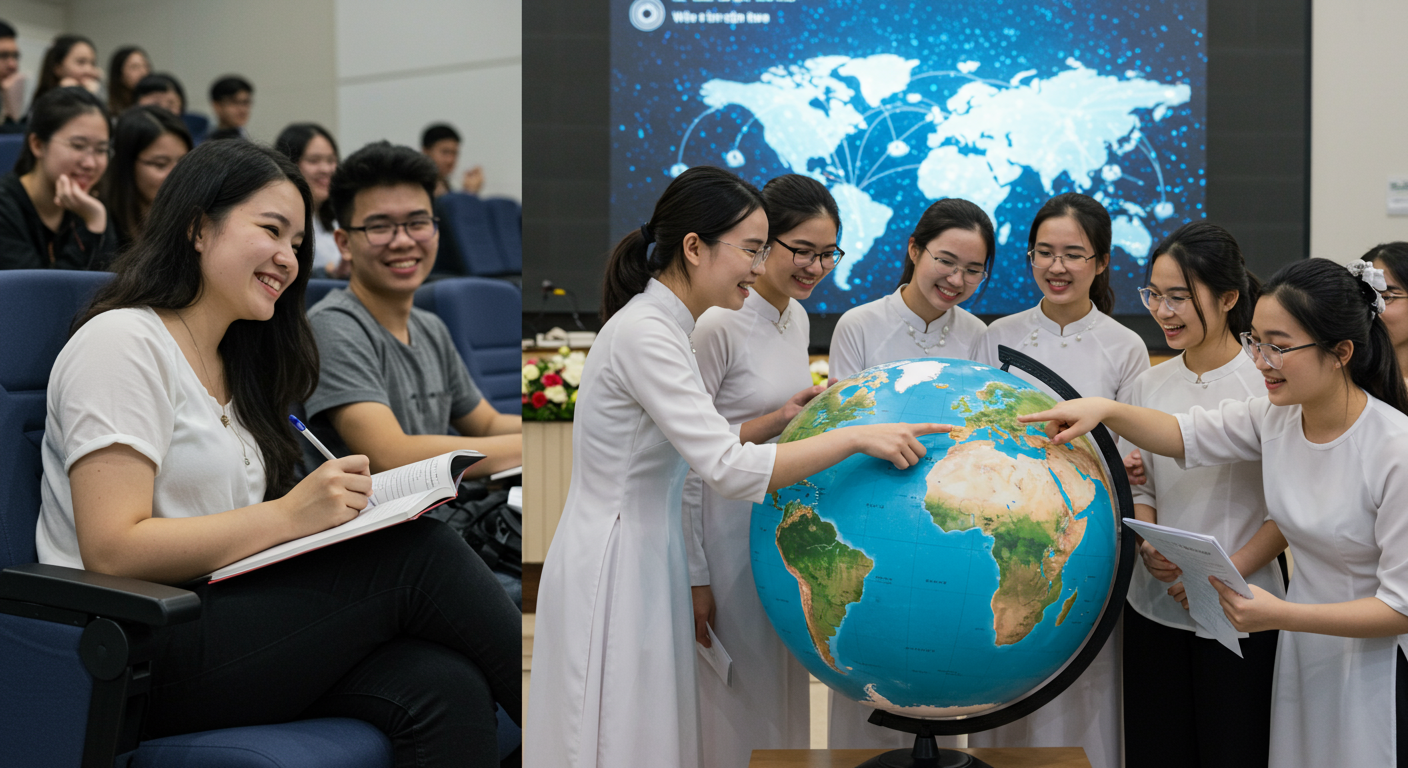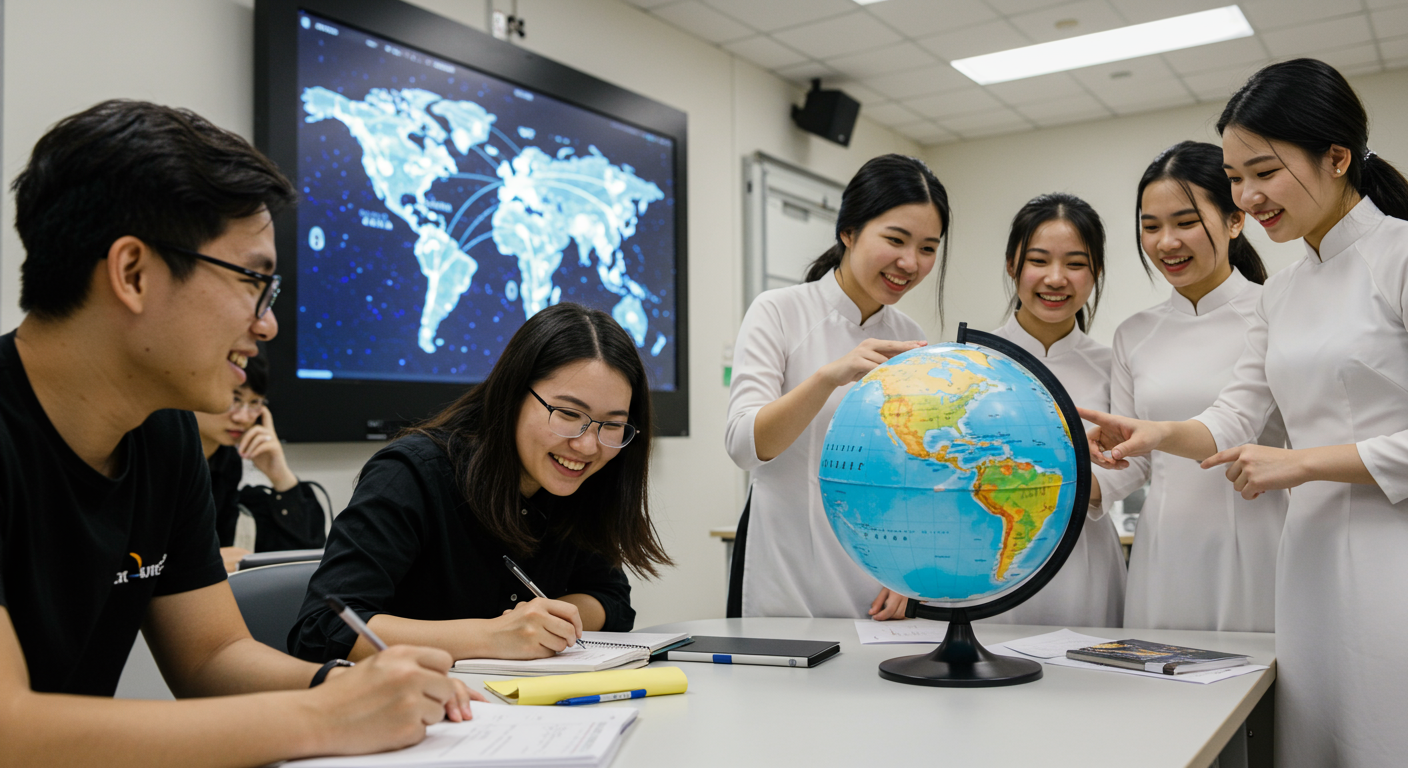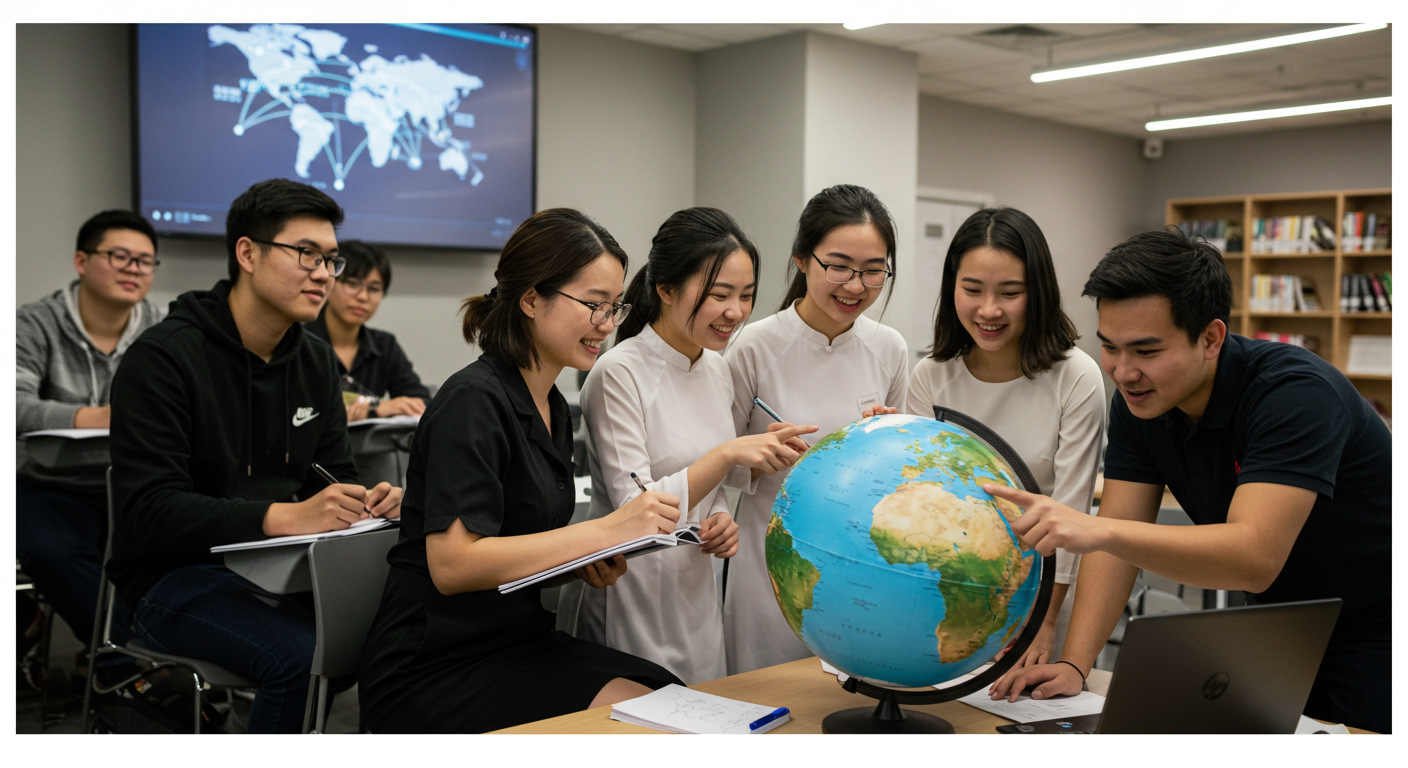Fostering Global Citizens: Unpacking Vietnam's Role in World Citizenship Education
Fostering Global Citizens: Unpacking Vietnam's Role in World Citizenship Education
Have you ever truly wondered what it means to be a global citizen in our interconnected world, especially for the youth?
I recently stumbled upon something quite inspiring: a lecture on "World Citizenship Education - Vietnam" held at the Seoul Global Youth Education Center. It was a clear reminder that fostering a global mindset isn't just about learning geography or history. It's about understanding our shared humanity, recognizing diverse perspectives, and actively working towards a more peaceful and sustainable future. And honestly, seeing young people engage with such critical topics always fills me with so much hope. So, let's dive into what this is all about, shall we?
Table of Contents
Understanding World Citizenship Education: More Than Just Geography
When we talk about World Citizenship Education (WCE), it’s not just about getting a passport or understanding another country's capital. No, it’s so much more profound! It's about equipping individuals, especially young people, with the knowledge, skills, and values they need to be informed, engaged, and responsible global citizens. This means understanding global issues like climate change, poverty, and human rights, and feeling a sense of belonging to a broader community. Honestly, for a long time, I thought "global citizen" was just a fancy term, but now I see it as a call to action.
WCE emphasizes interconnectedness and interdependence. It teaches us that what happens in one corner of the world can have ripple effects everywhere else. Think about it – the recent pandemic showed us just how true that is! It also encourages critical thinking about global challenges and promotes empathy towards people from different cultural backgrounds. Because let's be real, a little empathy goes a long, long way in this world. It’s about building a sense of shared responsibility for our planet and its people, moving beyond national borders and into a collective future.
The goals are ambitious but crucial: fostering peace, promoting sustainable development, and defending human rights. It's a holistic approach, aiming to develop both intellect and character. It's about creating individuals who can not only adapt to a rapidly changing world but also actively shape it for the better.
 Description: "A diverse group of young adults, perhaps late teens to early twenties, are seated in a bright, modern auditorium, actively listening and taking notes. The background shows a large screen displaying a world map with interconnected lines. The atmosphere is engaged and intellectual, with a realistic photo style."
Description: "A diverse group of young adults, perhaps late teens to early twenties, are seated in a bright, modern auditorium, actively listening and taking notes. The background shows a large screen displaying a world map with interconnected lines. The atmosphere is engaged and intellectual, with a realistic photo style."
Vietnam's Unique Contributions to Global Citizenship
Vietnam, a nation with a rich history and vibrant culture, offers a fascinating perspective on global citizenship. For centuries, its people have navigated complex international relations, from ancient trade routes to modern diplomacy. This historical backdrop, coupled with its rapid economic development and increasing integration into the global community, makes Vietnam a compelling case study for WCE. When I think about it, their journey from conflict to cooperation, from isolation to integration, really embodies the spirit of global citizenship. It’s a powerful narrative, don't you think?
The country's emphasis on education and its young, dynamic population are key assets. Vietnamese youth are increasingly connected to the world through social media, international exchanges, and a growing English proficiency. This generation is poised to become active contributors to global dialogue. It's not just about what they learn, but how they apply it to foster peace and understanding, drawing from their own unique experiences and cultural heritage. They're not just consumers of global culture; they're becoming active participants in shaping it.
Vietnam’s participation in various international organizations, its efforts in sustainable development, and its growing cultural exchange programs also demonstrate a commitment to these global values. From my personal observation, countries like Vietnam, which have experienced significant historical challenges and then emerged with resilience, often have the most valuable insights to share about overcoming adversity and building bridges between cultures.
 Description: "A group of Vietnamese high school students, dressed in their traditional white ao dai uniforms, are gathered around a globe in a classroom, pointing and discussing. The room is bright and modern, suggesting an educational setting. The students are smiling, conveying a sense of curiosity and engagement, in a colorful, slightly stylized photo."
Description: "A group of Vietnamese high school students, dressed in their traditional white ao dai uniforms, are gathered around a globe in a classroom, pointing and discussing. The room is bright and modern, suggesting an educational setting. The students are smiling, conveying a sense of curiosity and engagement, in a colorful, slightly stylized photo."
The Power of Youth: Shaping Future Global Leaders
Let’s be honest, the future really does belong to the youth. They are the ones who will inherit our planet and its challenges, and frankly, they’re often better at understanding the need for global cooperation than we sometimes give them credit for. World Citizenship Education specifically targets this demographic, nurturing their potential to become future global leaders. It’s not about turning them into politicians, but about instilling leadership qualities that serve the broader community.
By engaging in WCE programs, young people develop critical skills such as cross-cultural communication, problem-solving, and ethical decision-making. These aren't just buzzwords; these are practical tools they can use to navigate increasingly complex global landscapes. I recall a time when I was younger, I barely understood what was happening outside my own town, let alone the world. These kids today, they're so much more aware, and that's just fantastic.
Moreover, these programs often provide platforms for youth to engage directly with global issues, sometimes even participating in projects that have real-world impact. Think Model UN, international volunteer work, or even local initiatives addressing global problems. This hands-on experience transforms abstract concepts into tangible actions, fostering a sense of agency and inspiring them to make a difference.
 Description: "Three young people, a male and two females aged 18-22, from different ethnic backgrounds, are working together on a laptop, smiling and pointing at the screen. They are in a modern library or collaborative workspace, symbolizing teamwork and global collaboration. The image has a vibrant, energetic feel, depicted in a realistic photo style."
Description: "Three young people, a male and two females aged 18-22, from different ethnic backgrounds, are working together on a laptop, smiling and pointing at the screen. They are in a modern library or collaborative workspace, symbolizing teamwork and global collaboration. The image has a vibrant, energetic feel, depicted in a realistic photo style."
Lessons from Seoul: A Glimpse into Real-World WCE
The event in Seoul, where youth gathered at the Seoul Global Youth Education Center in Yeongdeungpo-gu District to participate in a lecture on "World Citizenship Education - Vietnam," really highlights the practical application of these ideals. It wasn't just some dry, academic talk; it was an opportunity for young minds to connect with a specific nation's journey and context. These kinds of exchanges are absolutely vital. I mean, how else do you truly learn about a culture, if not from those who live it?
These interactions provide a unique window into understanding different perspectives. Learning about Vietnam from a WCE standpoint likely involved discussions on its history, socio-economic development, challenges, and contributions to global peace and culture. It probably sparked some fascinating conversations among the attendees, pushing them to think beyond their immediate surroundings. It allows young people to move past stereotypes and really dig into the nuances of a country.
Such events are crucial for fostering cross-cultural understanding and dialogue. They break down barriers, build bridges, and cultivate a generation that is not only tolerant but genuinely appreciative of diversity. This is where the magic happens, where textbooks come alive, and where true global citizens are formed.
 Description: "A youthful male lecturer, in his late 20s, stands at a podium addressing an attentive audience of diverse young people in a large, brightly lit lecture hall. A banner in the background reads 'World Citizenship Education'. The atmosphere is formal yet engaging, in a clear and professional photographic style."
Description: "A youthful male lecturer, in his late 20s, stands at a podium addressing an attentive audience of diverse young people in a large, brightly lit lecture hall. A banner in the background reads 'World Citizenship Education'. The atmosphere is formal yet engaging, in a clear and professional photographic style."
Building Bridges: Why WCE is Essential for a Harmonious World
In a world that often feels fractured and polarized, the need for World Citizenship Education is more pressing than ever. It's not a luxury; it's a necessity. We're facing global challenges that no single nation can solve alone, from climate change to social inequality. We need collaboration, understanding, and a shared vision. I believe this with all my heart, and sometimes it feels like the only way forward.
WCE helps lay the foundation for a more harmonious and peaceful world by fostering individuals who are not only aware of global issues but are also motivated and equipped to contribute to solutions. It teaches us to see the 'other' not as a threat, but as a fellow human being with valuable experiences and perspectives. It's about finding common ground, even amidst our differences.
Ultimately, investing in World Citizenship Education is investing in our collective future. It's about raising a generation that champions peace, justice, and sustainability, ensuring that the world we leave behind is better than the one we inherited. That’s a legacy I think we can all get behind, don't you?
The primary goal of WCE is to empower individuals, particularly youth, with the knowledge, skills, and values needed to be informed, engaged, and responsible global citizens. It aims to foster a sense of belonging to a broader community and a shared responsibility for global issues.
Vietnam's rich history, rapid economic development, and increasing global integration make it a compelling example. Its journey from historical challenges to active participation in global affairs offers valuable lessons in cooperation and understanding, especially for its young, globally connected population.
WCE cultivates critical skills such as cross-cultural communication, problem-solving, and ethical decision-making. These programs provide hands-on experiences, fostering a sense of agency and inspiring youth to actively contribute to solutions for global challenges, thus preparing them for leadership roles.
Such events offer practical platforms for youth to engage directly with specific national contexts and global issues. They facilitate cross-cultural understanding, break down stereotypes, and encourage dialogue, transforming abstract concepts into tangible learning experiences that foster true global citizenship.
Comments
Post a Comment